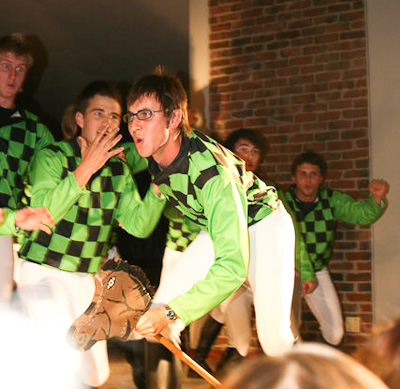 |
|
The Veritas men show their talent during our campus’s recent sêr competition.
Photo: Provided
|
A group of talented Kovsies, each with a smile, are busy packing their cases. After winning our annual “sêr” competition, the “sêr” groups of the Sonnedou and Veritas Residences are getting ready to represent the University of the Free State (UFS) at the National “Sêr” Competition, which is taking place at Stellenbosch University (US) this year.
After months of intensive rehearsals, tension and excitement, the two city hostels are getting ready to compete against other South African universities for the trophies for the best women’s and men’s “sêr” group.
This competition, which is taking place on 4 September, is a major event on the cultural calendar. Although our representatives are from city residences, they have worked as hard, if not harder, than the resident students.
Sonnedou also participated last year, when the competition took place at the University of Johannesburg (UJ). The group then came second and they are ready to bring home the first prize this year. Their repertoire include, amongst others, “Nkosi Sikeleli i'Afrika” and “Kinders van die Wind” by Koos du Plessis.
According to Herman Naudé, head student of Veritas and second tenor in the “sêr” group, the group is very excited about their participation in the competition. With songs like “Lief vir alles hier” by André Schwarts and “Sweet child O’ mine” by the group Guns ‘n Roses, they plan to fulfil the expectations of their fans and the adjudicators. “I really think we have a good chance to win this year,” says Herman. –Lize du Plessis